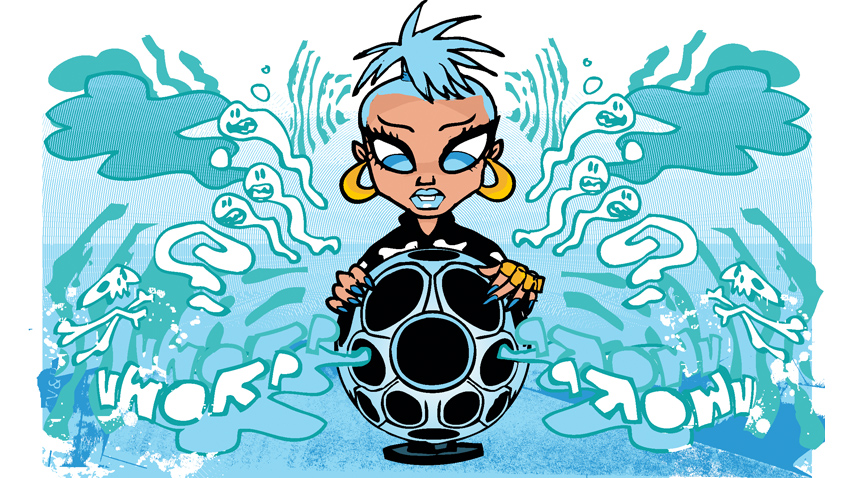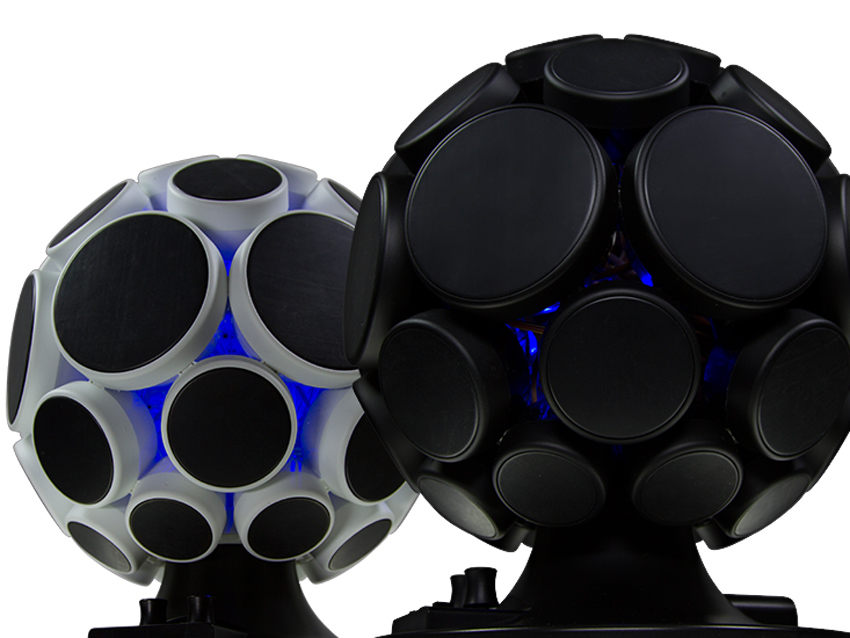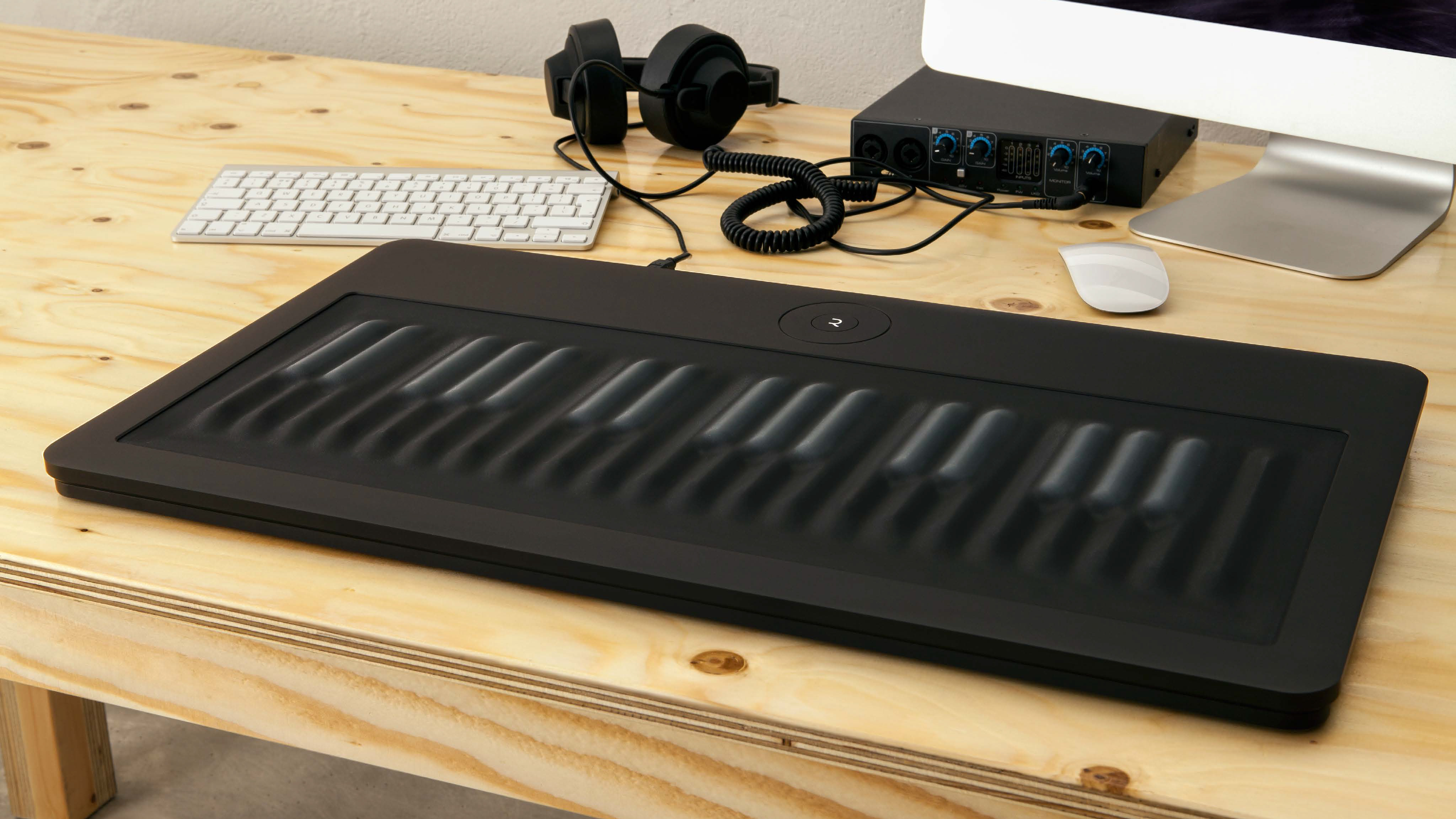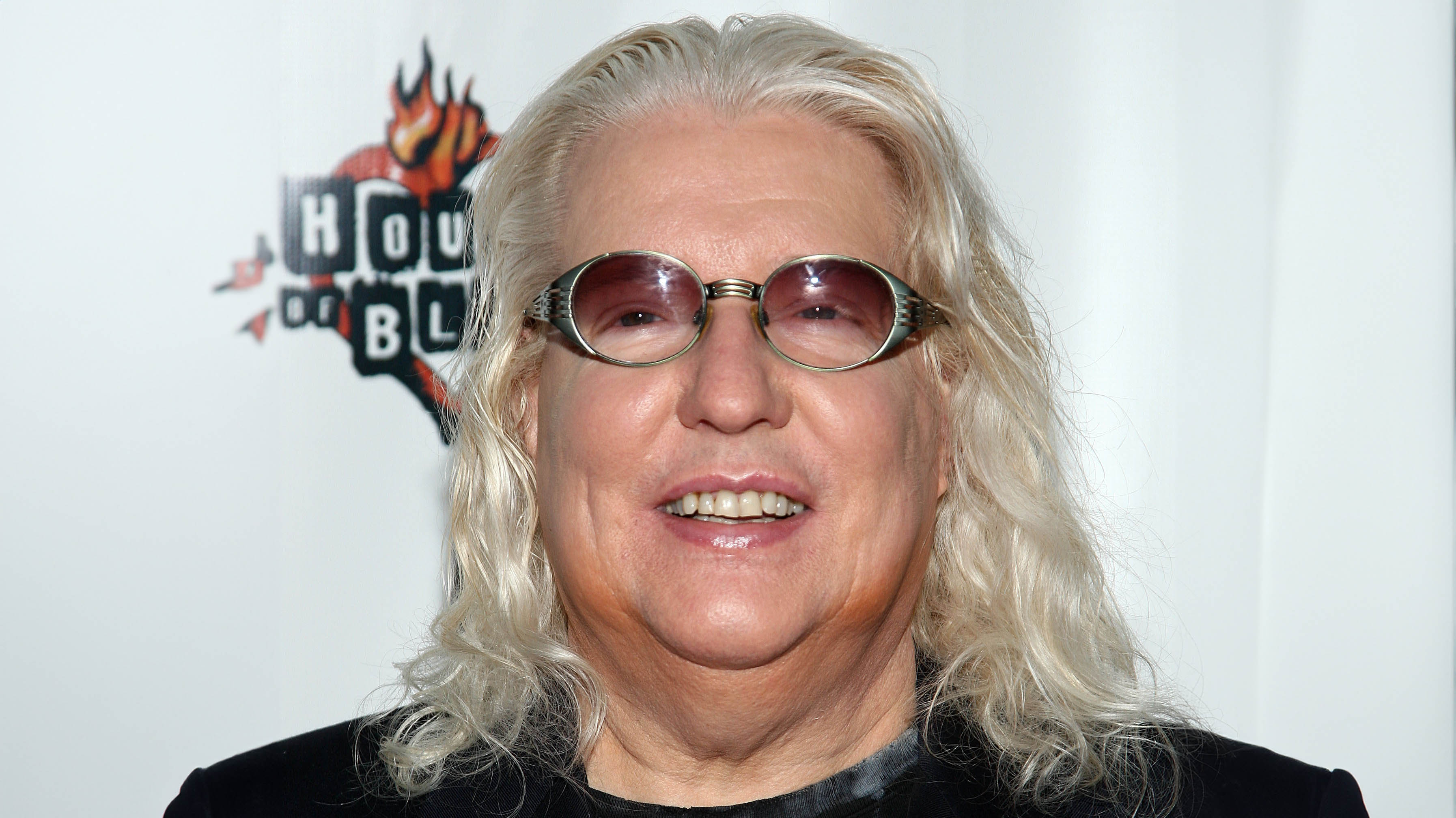Will alternative MIDI controllers ever go mainstream?
We chat to the creators of the Seaboard and AlphaSphere

As the virtual instrument revolution has rendered hardware synths a nicety rather than a necessity - and hardware samplers completely obsolete - the standard computer music setup is now pretty much set in stone. You've got your PC or Mac running the software, a set of monitors, an audio interface and a MIDI controller keyboard. This keyboard might have knobs, faders, pads and buttons on it, or you might add a second device to deal with those, but its primary purpose is to enable you to play and record notes and other data into your DAW.
For any aspiring computer muso, this configuration is an excellent place to start, but for some hardware boffins, it's a gauntlet lying on the floor. Over the years, we've seen all kinds of alternative controllers designed to give you a different way - or a better way, if you believe the marketing - of creating music.
It's no exaggeration to say that these products have come in all shapes and sizes. In recent years, we've had the Eigenharp, which looks like some kind of futuristic space oboe; the Karlax, which could be a military issue clarinet; and the AXiS, which, with its layout of hexagonal buttons, might be mistaken for a code-breaking machine or tabletop Blockbusters game.
"In the Kickstarter era, new alternative controllers are being pitched to the public on what seems like a weekly basis."
And these are just a few examples - in the Kickstarter era, new alternative controllers are being pitched to the public on what seems like a weekly basis.
But none of them so far have really broken through to the mainstream, so why do people keep making them, and could the standard piano keyboard ever really be usurped as most people's controller method of choice?
New directions
We spoke to Adam Place of nu desine, which has brought the oddball AlphaSphere to market. This spherical controller features a matrix of circular buttons, with the round design highlighting the 'infinite' nature of the device. It's certainly a world away from a basic two-octave MIDI keyboard, so what inspired its creation?

"Essentially, we were disappointed by the limitations of keyboards and pad-based controllers for playing electronic music," says Place. "Keys, dials, wheels and velocity pads are all very well and good, but if you compare these interaction mechanisms to the kind of mechanisms which exist in more traditional instruments, then they pale in comparison in terms of the control of timbre and expression."
Get the MusicRadar Newsletter
Want all the hottest music and gear news, reviews, deals, features and more, direct to your inbox? Sign up here.
So the keyboard has its limitations - unlike in many instruments, notes are static once they've been played - so it seems logical that developers and users should look at alternatives. But could the AlphaSphere be a replacement for a keyboard rather than just a companion for it?
"Keys, dials, wheels and velocity pads are all very well and good, but if you compare these interaction mechanisms to the kind of mechanisms which exist in more traditional instruments, then they pale in comparison." Adam Place, nu desine
"The AlphaSphere can definitely sit alongside a keyboard in a studio, but it's not essential to have a keyboard," believes Place. "We've designed the AlphaSphere so it is possible to explore notation in a more freely programmable way than using a keyboard. The hexagonal lattice that the pads are arranged in essentially allows for logical notational arrangements to be mapped around it, and the three-dimensional form becomes a canvas for exploring notation."
"At the end of the day, if you already play the piano or the keyboard, then it can make sense to have one in your studio. If you don't, then it is not necessarily the most logical thing to use."
Is it plausible that a controller with as radical a design as this one could become more than a curiosity or niche product and break through into the computer music-making mainstream, though?
"Though we weren't aiming to make a mass- produced product, we have already found that the demand has outstripped supply," says Adam Place. "At the moment, we're at a point in music where so much of the sound palette has been explored, that offering something like the AlphaSphere gives us the opportunity to explore this in a rich new way, and creating dynamic and organic-feeling electronic music will become infinitely more possible.
"There will come a time when just exploring the same sound palette with the same tools will become unacceptable for listeners, so on that level, there is potential for the AlphaSphere and/or one of its variants to become ubiquitous within the marketplace."
The keyboard strikes back
Bold words, but the keyboard is such an integral part of the electronic music-making status quo that usurping it won't be easy. You could argue, then, that the next-gen controller that has the best chance of making an impact is one that takes this familiar design and runs with it.
This is where ROLI's Seaboard comes in. Its notes are laid out in a piano-style configuration, but they're made of silicon and feature multiple sensors that enable polyphonic pitchbending, aftertouch and vibrato-style expression. Roland Lamb, its inventor, confirms that he wanted to take what's good about the piano and build on it.

"I grew up playing the piano and always loved the enormous possibilities created by the black and white keys," he tells us. "Over time, though, I became frustrated with its limitations. I wanted to be able to bend notes or stretch them out, to use vibrato and control the dynamics. I wanted the freedom of expression of woodwind and string players, so I began to explore ways to transform the piano into something new.
"The Seaboard parallels the keyboard, and in the long run has potential in almost all the areas that keyboards are used. The Seaboard is aimed at innovative performers, producers, composers and sound designers interested in being able to create music through continuous polyphonic control of pitch, volume and timbre in real time."
"I wanted the freedom of expression of woodwind and string players, so I began to explore ways to transform the piano into something new." Roland Lamb, ROLI
While the Seaboard may still have a hard job convincing a potential buyer to leave behind traditional up-vs-down key control, Lamb confirmed that he'd like to make the instrument more accessible in the future. What's more, he does feel that its relative familiarity gives it a better chance of success than some of the other novel controllers that are coming to market.
"The main advantage we have is that we build off of something old and very well-known. While there are many other controllers that afford an impressive level of expressivity, the Seaboard allows keyboard players to continue to rely on the muscle memory they have already developed, while providing exponentially more control. And it feels completely different to anything else on the market: its soft, silicon surface provides a uniquely sensitive tactile experience for players to literally touch sound."
ROLI isn't the only next-gen keyboard developer in town - the Endeavour Evo is a more conventional-looking controller keyboard with sensors to track your fingers' movements, and the new TouchKeys system enables you to stick touch sensors onto your existing keyboard. So it seems that those of us who stick with the piano layout will have more expressive hardware to choose from in the future.
Others, though, will think like nu desine's Adam Place and continue to seek alternatives. "The keyboard in its current form exists more out of convenience and familiarity than out of logic or musical sense, so I don't see any reason for it to persist as an industry standard."
This article originally appeared in issue 197 of Computer Music magazine.


Computer Music magazine is the world’s best selling publication dedicated solely to making great music with your Mac or PC computer. Each issue it brings its lucky readers the best in cutting-edge tutorials, need-to-know, expert software reviews and even all the tools you actually need to make great music today, courtesy of our legendary CM Plugin Suite.










